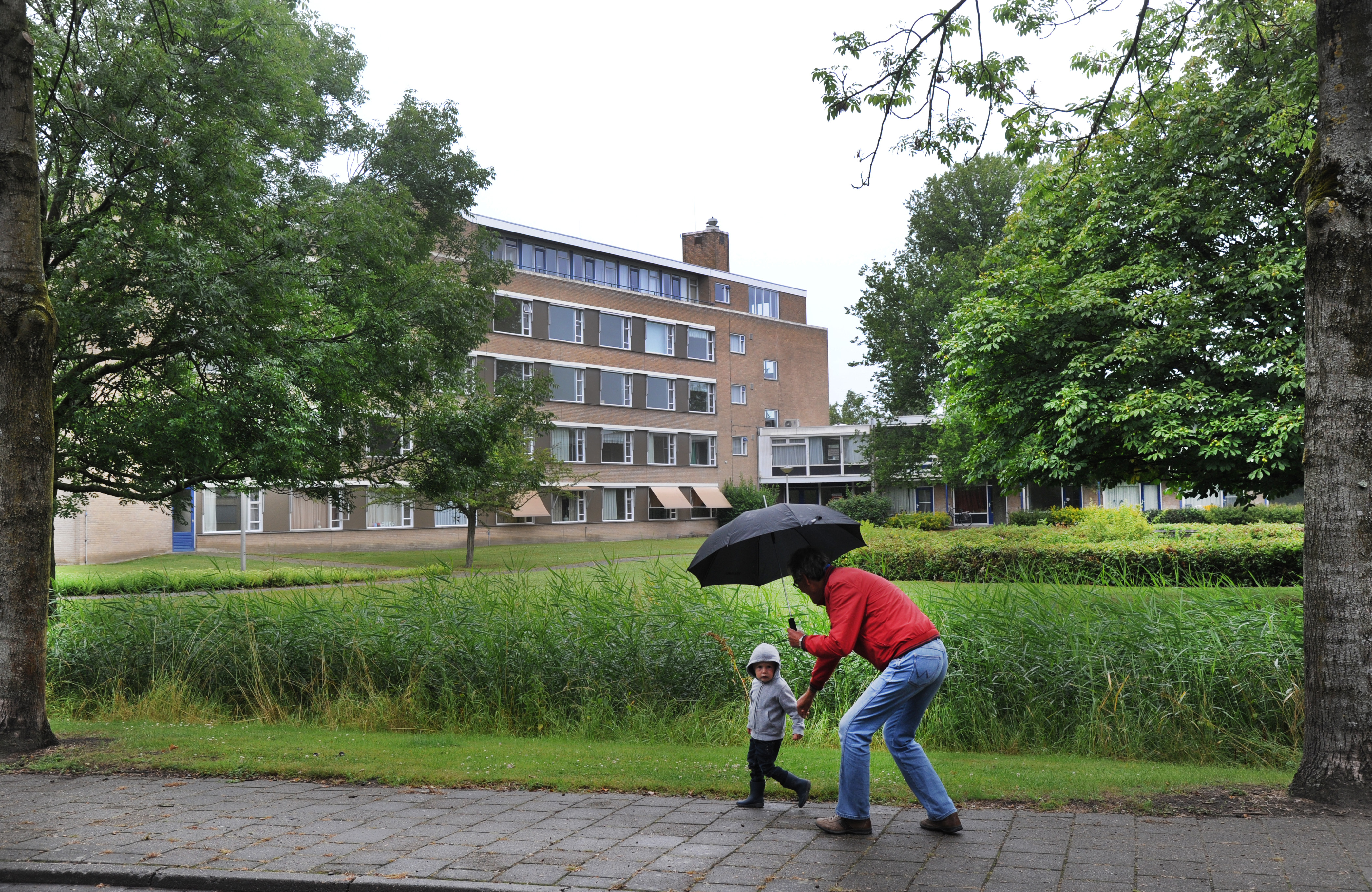by Alina Achenbach and Hannah Nonnenberg
ON a Monday evening some-where in the West of Middel-burg, after an hour behind closed doors a dozen women and girls step out of the room where they usually learn Dutch. Laughing and chatting, three friends from Eritrea slip back into their flip-flops; a woman from Albania carries her baby-son, the two sisters from Syria readjust their hijabs.
At UCR we learn much about the problems and workings of the world around us. We learn about the outside world from within a small bubble that we have created for ourselves, a bub-ble consisting of six hundred inhabi-tants who try to make the UCR-micro cosmos a pleasant place to dwell and thrive. But what we experience now is that humanitarian crises do not only happen on TV or in our course books. We can see it right here, in Middelburg, which sometimes seems to be so re-mote from the rest of the world. For a couple of years already, there have been around 300 men, women, and children living in the local asylum seeker center, near ‘De Sprong’ – just across the street of the very borders of our little bub-ble. This is where our micro cosmos intersects with the global world of our course books.
The vast majority of the inhabitants at the center in Middelburg are Syrians, next to a number of Eritreans, Irani-ans, some from Cameroon, Guinea and even China. Some speak English, some have a great time learning Dutch, some feel safer sticking to Arabic or Tigrinya. We met a camerawoman, a high school Arabic teacher, a shopkeeper, people who used to be rich and people who used to be poor. Now they are learning Dutch together, have to study a foreign tax and administration system and re-member never to walk on a Dutch cycle tunities for all UCR students who are interested in (or already working on) connecting humans regardless of their papers or nationalities. We started out with visiting the cen-ter every Monday to have a yoga session with some women. Now, there are al-ready over fifty UCR students prepar-ing shared dinners, art workshops, entertainment for the children and many more creative projects. We do it in order to get to know each other, to create a space to relax and exchange. We as students are stressed because of nearing deadlines and tedious home-work. The asylum seekers are stressed because they worry whether they will be sent back again, others wonder about their future here in Europe. And while singing, eating, chatting and doing sports together, we maybe all realize that we are not so different after all. <
As the refugee crisis reaches its height many of us realize that it is not the right decision to sit back behind fences, which we continue to build higher and stronger. The last few weeks we, that is a group of enthusias-tic students; some from the philosophy classes, in which volunteering is part of the course work, as well as many board members and individual students with great ideas – have worked hard on syn-chronizing and setting up initiatives at UCR. PUMA, PoLaw, RedCross Stu-dentdesk Zeeland, Cooking Society and many more are now tied together in an organized network. Setting it up as a joint UCR effort, this allows for a better involvement in and communica-tion with the Middelburg community in general and the AZC in particular. But it also offers more clarity and opportunities for all UCR students who are interested in (or already working on) connecting humans regardless of their papers or nationalities.
We started out with visiting the cen-ter every Monday to have a yoga session with some women. Now, there are al-ready over fifty UCR students prepar-ing shared dinners, art workshops, entertainment for the children and many more creative projects. We do it in order to get to know each other, to create a space to relax and exchange. We as students are stressed because of nearing deadlines and tedious home-work. The asylum seekers are stressed because they worry whether they will be sent back again, others wonder about their future here in Europe. And while singing, eating, chatting and doing sports together, we maybe all realize that we are not so different after all.
If you are also interested in joining these initiatives, like their facebook page (‘Refugee work in Middelburg’) or contact them via their UCR-mail.
Hannah Nonnenberg, Class of 2017, is a Law and Sociology major, from Ulm, Germany.
Alina Achenbach, Class of 2017, is an Interdepartmental major in Philosophy, Anthropology and Politics, from Frankfurt am Main, Germany.

